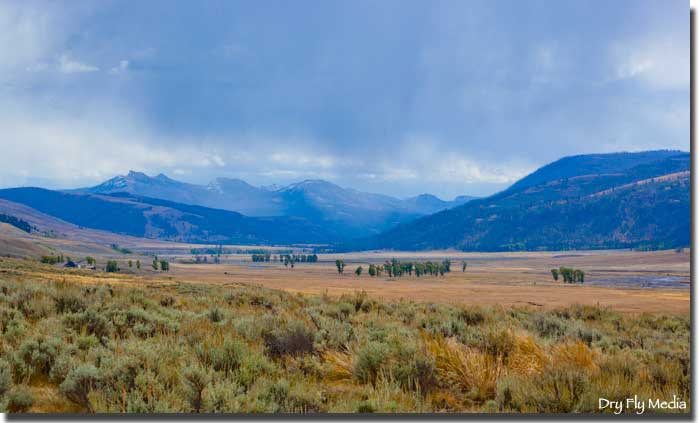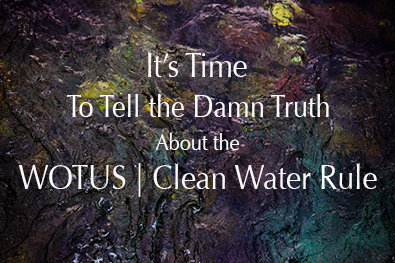Montana’s PLWA, the Public Land / Water Access Association, has for many years been a staunch defender of public access rights in Montana. Just a few weeks ago they won a major round in the Ruby River access battle with Atlanta media mogul James Cox Kennedy.
PLWA president John Gibson recently wrote eloquently about the issue in the Spring PLWA newsletter –
Big Win for Montana Sportsmen
The recent ruling by the Montana Supreme Court upholding our state’s stream access law and the ability of everyone to get to streams from county roads is a victory of all Montanans and all who enjoys our public waters. It also illustrates the stark difference of views about who should get to enjoy public land and water.
The case, (Public Access v. Madison County), challenged a landowner’s ability to block off access to the Ruby River at three bridges used by the public for decades. James Cox Kennedy, a Ruby Valley landowner and media mogul, intervened in the case and challenged not only the road issue but also our state’s stream access law.
There are those, like Kennedy, who claim they own the rivers as well as the wind that blows across the valley. They claim this must be true because they own a deed to the land. They see themselves as part of the chosen few destined to stand above the masses. Look carefully at that deed. See if you can find where it says you own the river or the air. The same omission includes the wildlife and the fish in those rivers.
Landowners don’t own the river any more than you own the wind. Both are conditions of the land, as laid out in state law. They knew or should have known about wind and water ownership when they acquired the land. They can use them but they don’t own them. These are public resources much like the public road network that we all use every day. They are part of the public estate. But the most important condition at the time of acquisition is the will of the people as expressed by our constitution, laws, and decisions of our courts.
References to the recent U.S. Supreme Court decision in PPL Montana v. Montana have nothing to do with stream access. The state argued navigability and that it obtained title to the relevant streambeds at the time of statehood under the “equal footing” doctrine. The U.S. Supreme Court struck down that idea. Montana’s 1985 Stream Access Law is based on the “public trust” doctrine where states can reserve certain resources to the public itself.
The Stream Access Law allows the public to move up and down any water course large enough to accommodate water-based recreation as long as the use takes place below the high water mark. However, the public cannot trespass on private land to reach these streams and rivers. It is the most pro-public stream access law in the country. Sportsmen and women nationwide look to as a model.
That is one reason the road decision by the Supreme Court is of such great importance. Kennedy’s strategy to privatize the river was if you can’t stop people from using the river, perhaps you can stop them from getting to it. If the easement on a public road can be made so narrow that it did not intersect the stream high water mark then no legal access is possible.
Thanks to our Supreme Court, that tactic has been rejected by determining that the easement on a public road can extend the full width of the roadway and is limited to the just road surface. And the ruling will have implications for land access too. The Court said that when a road has been used by the public, even for recreational purposes, it’s public forever. We in PLWA take action statewide where people put gates over county roads and block off thousands of acres of public land. We hear often about private property rights, but there are also public property rights to enjoy public resources, including public land, water, and the fish and wildlife that inhabit them.
I am part of a team of Magic City Fly Fishers teaching elementary school students fly tying as we have done for the past two decades with the hope they will become tomorrow’s anglers. As PLWA president, I plan to protect their right to get to Montana’s rivers and streams as long as I am alive.
The state constitution states the waters of Montana are held in trust for the benefit of all of our people. Is it so hard to accept the idea that all the people should be allowed to enjoy them?
I hope these youngsters are prepared to defend their rights. There will always be those who want to claim control of what is not theirs.
Not unexpectedly, Kennedy appealed almost before the ink was dry on the Montana Supreme Court decision (using the imagery of the PLWA); the PLWA was ready with an answer to their rehearing request.
It ain’t over.
We’d urge every fisher who has fished Montana (or plans to some day) to support the PLWA with even a small donation to keep up their precedent setting work. (This encouragement is mine alone and has not been sought by the PLWA.)


